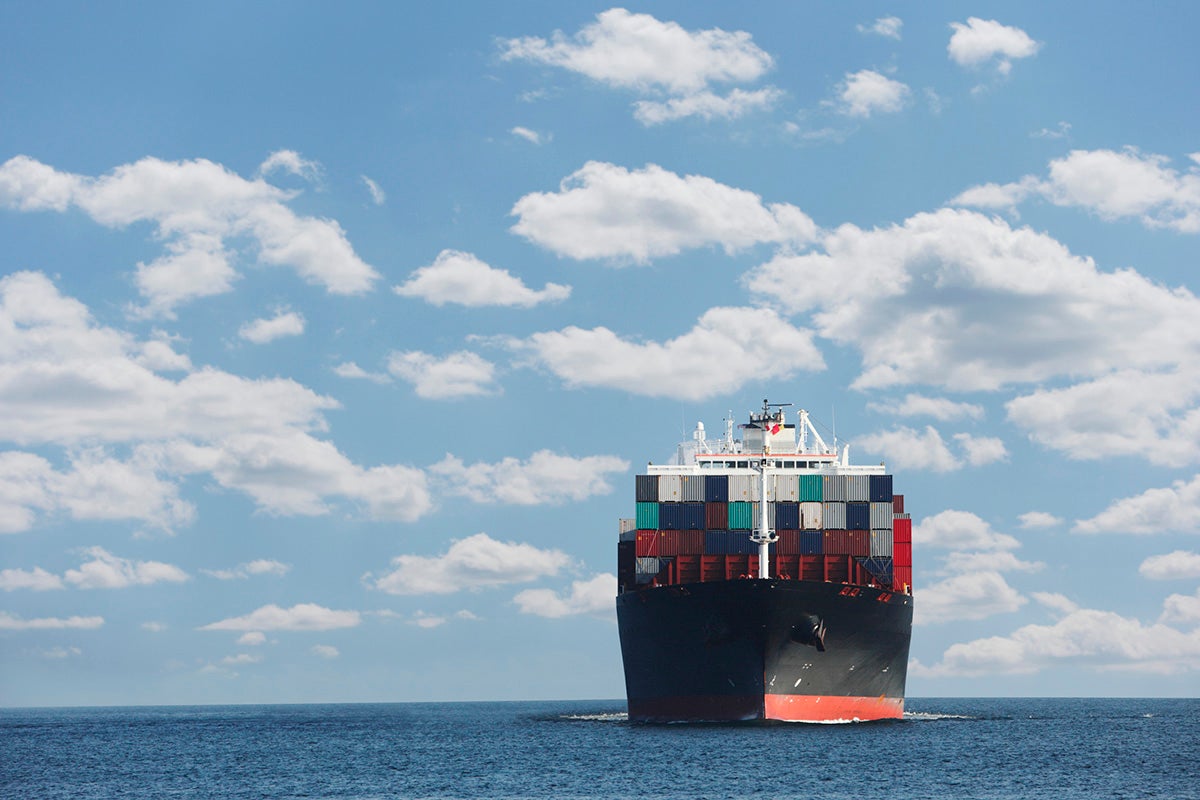It goes without saying that one of the biggest issues in the maritime industry is decarbonisation.
Profit and commercial priorities are as important as ever, but today, they are underpinned by regulatory and reputational pressure to reduce emissions.
Not to mention the increasing demand from charterers and cargo owners for more transparency and operational and environmental efficiencies, which also has an impact on shipowners’ bottom line.

Decisive action is essential for shipping to meet its decarbonisation targets and build sustainable practices for the future. There is no ‘silver bullet’ that will get the maritime industry to net-zero emissions, despite alternative fuels such as methanol or ammonia being held up as anticipated decarbonisation panaceas.
Shipping companies must look at other solutions which can drive an immediate reduction in fuel consumption and emissions today, as well as deliver operational efficiencies that will enable the successful transition to future fuels in the medium to longer term.
A costly, complex journey
The delivery and uptake of a new generation of viable and proven zero-carbon fuels will of course have a huge impact on the industry’s decarbonisation and ability to meet IMO, EU and other stakeholders’ targets and expectations.
However, the ideal scenario of a shipping industry operating on purely future fuels and new sources of energy will not happen overnight.
The fuel transition process will be long and complex.
The fuel transition process will be long and complex, as it requires a new sophisticated green shipping value chain to be created, including new bunkering infrastructure, associated regulatory standards, and the willingness of stakeholders across the industry to manage the transition – from owners, operators, charterers to financial institutions, fuel suppliers, storage providers and shipbuilders.
Creating these mechanisms will be costly, and there remain significant uncertainties over the availability and price of future fuels. Take methanol as an example. It takes two tonnes of methanol to get the same calorific value as one tonne of heavy fuel oil (HFO).
So, the ‘real’ price to operate a methanol-fuelled vessel is pushed up to $2,000 a tonne; over 300% more than current very low sulphur fuel oil (VLSFO) prices, and over 200% more than marine gasoil (MGO) prices.
Future fuels will undoubtedly play a critical role in meeting shipping’s decarbonisation targets. However, these cost implications may prove commercially difficult and cost-prohibitive for many industry players, requiring other solutions to make a meaningful emissions reduction impact.
Finding a cleaner way to operate
Recent research shows that low maturity and uncertainty about solution readiness is seen as the most significant barrier to decarbonisation.
Some parts of the industry are uneasy about investing in alternative fuels or technologies that they deem immature. This is where the importance of proven and immediately available clean technologies, such as hull coatings, can drive change.
Some parts of the industry are uneasy about investing in alternative fuels or technologies that they deem immature.
Every vessel must have a hull coating, which provides the industry with a unique and ubiquitous opportunity to reduce fuel consumption and associated costs and emissions using anti-fouling technology. Reducing drag from biofouling on the underwater hull of a vessel results in reduced fuel consumption and, critically, emissions.
By improving operational performance, vessels become less polluting and more cost-effective, making them more competitive in the eyes of their charterers who often pay for the cost of fuel.
Driving operational efficiencies, crucially, also helps to mitigate the added costs that bunkering expensive future fuels will eventually bring in the medium to long term.
Robust R&D demonstrates rigour
There is a wide diversity and availability of clean technologies across the shipping industry, but to generate maximum impact, it is important that ship owners and operators adopt proven solutions based on thorough due diligence and analysis.
For example, with a low-friction antifouling marine coating, fuel costs and emissions can be reduced by up to 8% compared to using standard coatings without proven biomimetic or low-friction properties.
There are multiple fuel options on the table to rapidly decarbonise the maritime industry.
Low-friction antifouling coatings are designed to minimise the effect that seawater temperatures, vessel speeds and other external factors have on coating performance. These factors enable coatings to lower fuel consumption under a wide range of ship operating conditions.
Working with manufacturers that demonstrate rigour in their R&D and testing processes ensures that the claimed efficiency savings can be verified and deliver tangible commercial impact.
There are multiple fuel options on the table to rapidly decarbonise the maritime industry. However, the price increase compared to current bunkering costs will be exponential.
Shipping must act now to adapt and evolve its operations today, adopting proven and readily available solutions that drive efficiencies. This will enable companies to better afford the elevated costs of tomorrow’s decarbonised maritime industry.




